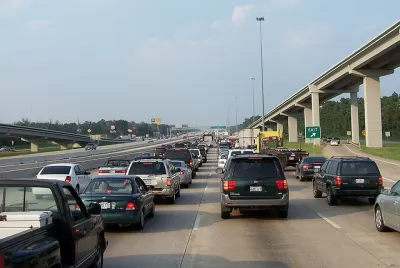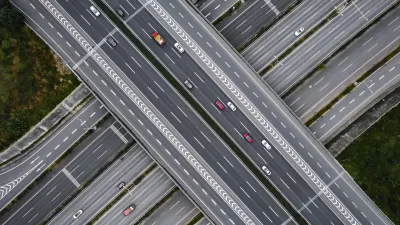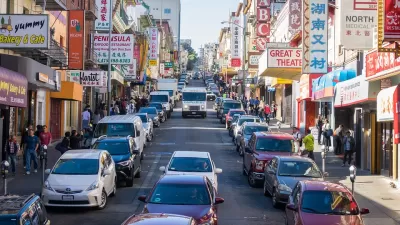The status quo is unhealthy for everybody.

Austin Frakt, director of the Partnered Evidence-Based Policy Resource Center at the V.A. Boston Healthcare System; associate professor with Boston University’s School of Public Health; and adjunct associate professor with the Harvard T.H. Chan School of Public Health, takes to the pages of The New York Times to provide a literature review, of sorts, of all the evidence for the negative health impacts of long, congested commutes.
There is a lot to unpack here, but research suggest that congestion and long-commute times has negative outcomes on stress, respiratory health, aggressive behavior, and domestic violence.
While there is plenty of bad news to deliver about the consequences of the daily realities of most people in the United States, Frakt also provides a few examples of light at the end of the tunnel, so to speak. For instance, charging drivers for access to express lanes has shown positive results on the stress levels of commuters:
Los Angeles has put in a system that charges solo drivers more to use certain lanes of the I-10 and I-110 highways during periods of heavy traffic. This encourages drivers to move their commutes to less congested times or routes. A study of congestion pricing on Seattle’s SR-520 Bridge found that drivers using the route and its alternatives were less stressed and more satisfied with their commutes after the pricing change.
Frakt also lists increasing options for remote work, bike and transit commutes (in some cities), and the potential of autonomous transportation for further mitigating some of the negative health outcomes connected to driving and congestion.
FULL STORY: Stuck and Stressed: The Health Costs of Traffic

Alabama: Trump Terminates Settlements for Black Communities Harmed By Raw Sewage
Trump deemed the landmark civil rights agreement “illegal DEI and environmental justice policy.”

Planetizen Federal Action Tracker
A weekly monitor of how Trump’s orders and actions are impacting planners and planning in America.

Why Should We Subsidize Public Transportation?
Many public transit agencies face financial stress due to rising costs, declining fare revenue, and declining subsidies. Transit advocates must provide a strong business case for increasing public transit funding.

Understanding Road Diets
An explainer from Momentum highlights the advantages of reducing vehicle lanes in favor of more bike, transit, and pedestrian infrastructure.

New California Law Regulates Warehouse Pollution
A new law tightens building and emissions regulations for large distribution warehouses to mitigate air pollution and traffic in surrounding communities.

Phoenix Announces Opening Date for Light Rail Extension
The South Central extension will connect South Phoenix to downtown and other major hubs starting on June 7.
Urban Design for Planners 1: Software Tools
This six-course series explores essential urban design concepts using open source software and equips planners with the tools they need to participate fully in the urban design process.
Planning for Universal Design
Learn the tools for implementing Universal Design in planning regulations.
Caltrans
Smith Gee Studio
Institute for Housing and Urban Development Studies (IHS)
City of Grandview
Harvard GSD Executive Education
Toledo-Lucas County Plan Commissions
Salt Lake City
NYU Wagner Graduate School of Public Service





























